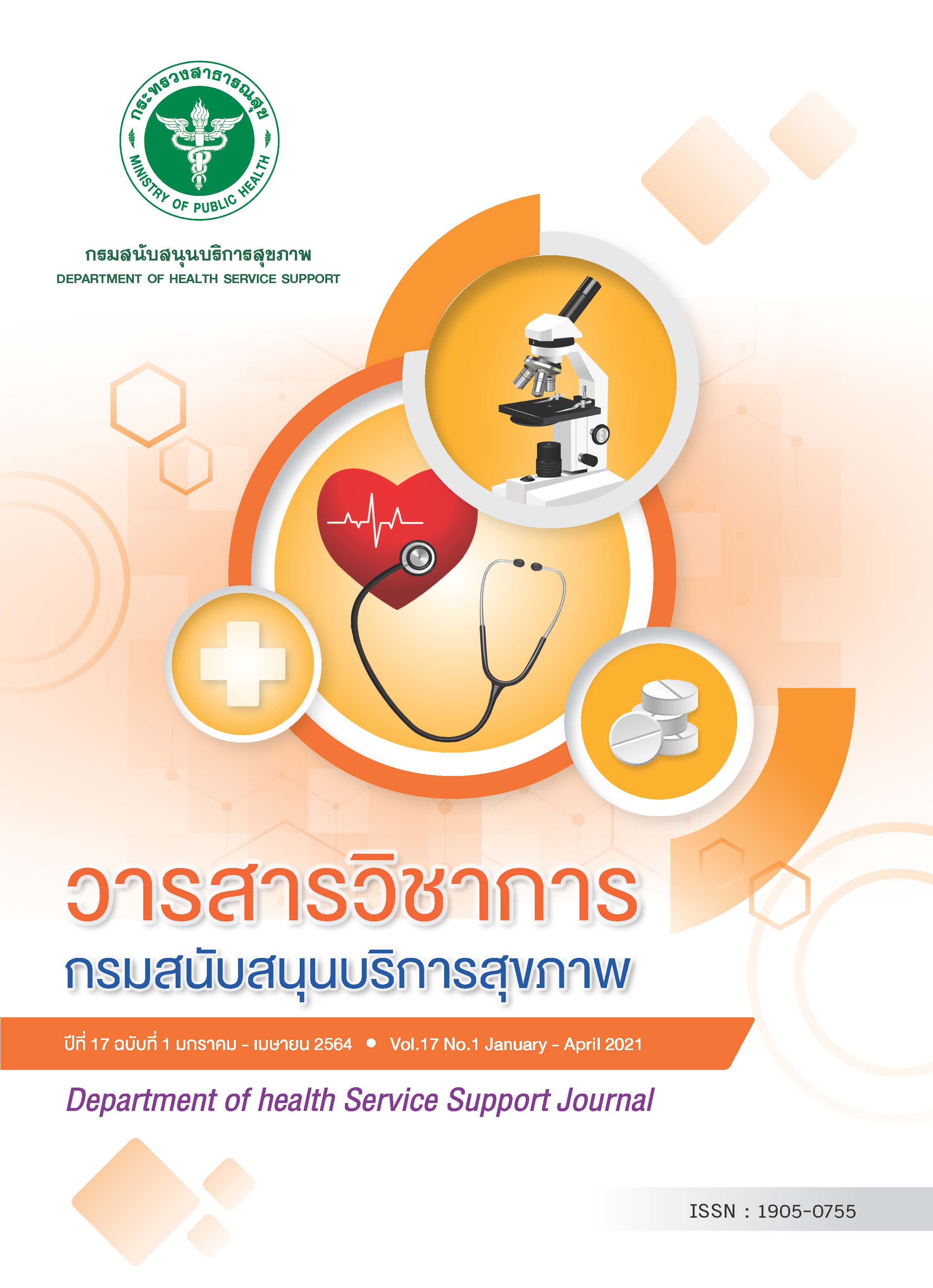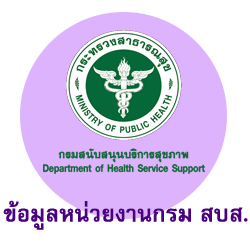ผลของโปรแกรมเสริมพลังอำนาจต่อคุณภาพชีวิตผู้ป่วยจิตเภท โครงการทดลองจ้างงาน โรงพยาบาลศรีธัญญา
คำสำคัญ:
การเสริมพลังอำนาจ, คุณภาพชีวิต, ผู้ป่วยจิตเภท, โครงการทดลองจ้างงานบทคัดย่อ
การศึกษาวิจัยครั้งนี้เป็นการวิจัยกึ่งทดลอง วัตถุประสงค์เพื่อวิเคราะห์เปรียบเทียบผลของโปรแกรมเสริมพลังอำนาจต่อคุณภาพชีวิต ทักษะพื้นฐานในการทำงาน ทักษะการปรับตัวทางสังคมและแหล่งพลังอำนาจ ของผู้ป่วยจิตเภทโครงการทดลองจ้างงานแบบกลุ่มเดียว วัดก่อนและหลังสิ้นสุดโปรแกรม 6 เดือน กลุ่มทดลองคือผู้ป่วยจิตเภทที่เข้าร่วมโครงการทดลองจ้างงานโรงพยาบาลศรีธัญญาแบบเจาะจง (ระหว่างเดือนตุลาคม-พฤศจิกายน 2562) จำนวน 12 คน เครื่องมือที่ใช้ในการวิจัยคือ 1) โปรแกรมเสริมพลังอำนาจผู้ป่วยจิตเภทโครงการทดลองจ้างงาน ซึ่งผู้วิจัยพัฒนาขึ้นผ่านการตรวจแก้ไขจากผู้ทรงคุณวุฒิซึ่งมีประสบการณ์การบำบัดฟื้นฟูผู้ป่วยจิตเวช จำนวน 5 ท่าน มีค่าความตรงตามเนื้อหา (IOC) อยู่ระหว่าง 0.60-1.00 2) แบบสอบถามข้อมูลส่วนบุคคล 3) เครื่องชี้วัดคุณภาพชีวิตขององค์การอนามัยโลกชุดย่อฉบับภาษาไทย (WHOQOL-BREF-THAI) 4) แบบประเมินทักษะพื้นฐานในการทำงานและทักษะการปรับตัวทางสังคม ซึ่งพัฒนาโดย ดร.สดใส คุ้มทรัพย์อนันต์และคณะ มีค่าความเที่ยง เท่ากับ 0.81 5) แบบประเมินแหล่งพลังอำนาจซึ่งพัฒนาโดยสุธิสา ดีเพชร มีค่าความเที่ยง เท่ากับ 0.90 วิเคราะห์ข้อมูลทางสถิติด้วย paired sample t-test
ผลการวิจัย พบว่า 1) ค่าคะแนนเฉลี่ยคุณภาพชีวิตโดยรวมและด้านร่างกาย ด้านจิตใจ ด้านความสัมพันธ์ทางสังคมของผู้ป่วยจิตเภทโครงการทดลองจ้างงานหลังได้รับโปรแกรมสูงกว่าก่อนได้รับโปรแกรมอย่าง มีนัยสำคัญทางสถิติที่ระดับ 0.05 ส่วนด้านสิ่งแวดล้อมหลังได้รับโปรแกรมสูงกว่าก่อนได้รับโปรแกรมอย่างไม่มีความแตกต่างทางสถิติ 2) ค่าคะแนนเฉลี่ยทักษะพื้นฐานในการทำงานและทักษะการปรับตัวทางสังคมทั้งโดยรวมและรายด้านรวมทั้งค่าคะแนนเฉลี่ยแหล่งพลังอำนาจของผู้ป่วยจิตเภทโครงการทดลองจ้างงานหลังได้รับโปรแกรมสูงกว่าก่อนได้รับโปรแกรม อย่างมีนัยสำคัญทางสถิติที่ระดับ 0.05
ดังนั้นโปรแกรมที่พัฒนามาจากงานวิจัยนี้สามารถเพิ่มคุณภาพชีวิต ทักษะพื้นฐานในการทำงานและทักษะการปรับตัวทางสังคมและแหล่งพลังอำนาจของผู้ป่วยจิตเภทโครงการจ้างงานได้ดี สามารถนำไปใช้เป็นรูปแบบในการพัฒนาโปรแกรมทดลองจ้างงานผู้ป่วยจิตเภทของนักสังคมสงเคราะห์จิตเวชได้ โดยเน้นการพัฒนาบุคลากรให้มีความรู้ ทัศนคติและทักษะการเสริมพลังอำนาจที่ดีนำกระบวนการไปปฏิบัติได้
เอกสารอ้างอิง
Bejerholm, U., & Björkman, T. (2011). Empowerment in supported employment research and practice: is it relevant?. The International journal of social psychiatry. 57(6): 588–595
Bond, G. R., Dincin, J., Setze, P. J., & Witheridge, T. F. (1984). The effectiveness of psychiatric rehabilitation: A summary of research at Thresholds. Journal of Psychosocial Rehabilitation. 7(4): 6-22
Bouwmans, C., de Sonneville, C., Mulder, C.L., & Hakkaart-van Roijen, L. (2015). Employment and the associated impact on quality of life in people diagnosed with schizophrenia. Journal of Psychosocial Neuropsychiatric disease and treatment. 11: 2125–2142
Charearnyuth, Nittaya., Sarakarn, Kotchapong., Pathipatpakdee, Hathairat. (2012). The Effect of Empowerment Program on power source, *self-esteem and self-care behavior for female schizophrenia patients. The Journal of Psychiatric Nursing and Mental Health. 26(3): 41-56. (in Thai)
Charlson,F.J. et al. (2018). Global Epidemiology and Burden of Schizophrenia: Findings From the Global Burden of Disease Study 2016. Journal of Schizophrenia bulletin. 44(6):1195–1203
Chou, K-R., et al. (2012). Psychosocial Rehabilitation Activities,Empowerment, and Quality of Community-Based Life for People With Schizophrenia. Retrieved February 22, 2019, from www.pubmed.ncbi.nlm.nih.gov/22835748/
Deepet, Suthisa. (2013 ). The effects of using empowerment program on self-stigma ofschizophrenic patients in community. (Master of Nursing Thesis, Mental Health and Psychiatric Nursing, Faculty Of Nursing Chulalongkorn University). (in Thai).
Department of Mental Health, Ministry of Public Health. (2019). Annual Report Department of Mental Health Fiscal Year 2019 (Report). Nonthaburi: Department of Mental Health. (in Thai).
Department of Mental Health. (2001). Participationary Training Manual. Nonthaburi : Mental Health Development Bureau. (in Thai).
Dziwota, E., Stepulak, M.Z.,Włoszczak-Szubzda, A., & Olajossy, M. (2018). Social functioning and the quality of life of patients diagnosed with schizophrenia. Journal of Annals of agricultural and environmental medicine: AAEM. 25(1): 50–55
Fujino, H., et al. (2015). Predicting employment status and subjective quality of life in patients with schizophrenia. Journal of Schizophrenia research Cognition. 3: 20–25.
Hannah Ritchie and Max Roser. (2018). “Mental Health”. Published online at Our World In Data.org. Retrieved February 1, 2019, from www. ourworldindata.org/mental-health
Harnois, G., Gabriel, P. (2000). Mental health and work: Impact, issues and good practices. Geneva: World Health Organization and International Labour Organisation
Rutman, I. D. (1994). How psychiatric disability expresses itself as a barrier toemployment. Journal of Psychosocial Rehabilitation. 17(3): 15-35
Khumsabanant, Sodsai et al. (2014). Prevocational and Social Skill Assessment. Nonthaburi: Socialwork section, Rajanukul Institute, Department of Mental Health. (in Thai).
Kim, Yi & Park, Hyun. (2010). The Effects of Insight and Empowerment on Function and Quality of Life for Patients with Schizophrenia. Journal of Korean Academy of Psychiatric and Mental Health Nursing (2010). 19(1): 11-21.
Hyun, M. S., Kim, H., & Nam, K. A. (2019). Effects of an empowerment program for community-dwelling people with mental illness in South Korea. Journal of Perspectives in psychiatric care.55(1): 15–22.
Jamjuree, Daranee and Unipan, Jintana. (2002). A study of the power to deal with illness among chronic disease patients in Thai society context (Report of Research). Bangkok: Agricultural Cooperative Community of Thailand. (in Thai).
Lotrakul, Manote and Sukanich Pramote (2012) Psychiatry Ramathibodi. 3rd edition. Bangkok: Department of Psychiatry. Bangkok. Department of Psychiatry. Faculty of Medicine Ramathibodi Hospital Mahidol University. (in Thai).
Maslow AH. (1943). A theory of human motivation. Journal of American Psychological Association.50(4): 370–396.
Miller, J. F. (1992). Coping with Chronic illness: Overcoming Powerlessness. 2nd ed. Philadelphia:F. A. Davis.
Shepherd, G. (1989). The value of work in the 1980s. Journal of Psychiatric Bulletin. 13(5): 231-233.
Srithanya Hospital, Department of Mental Health, Ministry of Public Health. (2018). Social Work Section (Report of summary). Nonthaburi: Srithanya Hospital Department of Mental Health. (in Thai).
Stapornteera, Pawinee and Sawangchareon Kritaya. (2018). Empowerment for male schizophrenia with low self-esteem. The journal of Boromarajachonanee College of Nursing, Nakhornratchasima. 24(2): 145-159. (in Thai).
Suwannaboon, waliaporn., Puapan, Saijai., Thanee, Sanguan., Dallas,Chaisena and Jinjutha. (2015). The effects of Interpersonal group therapy on quality of life among schizophrenic patients. The Journal of Faculty of Nursing Burapha
University. 23(1): 68-79. (in Thai).
World Health Organization. (2019) Schizophrenia. Retrieved June 1, 2019, From www.who.int/ news-room/fact-sheets/detail/schizophrenia”
Woo, J.H., Jang, J.H., & Cho, J.H. (2018). Effects of an Empowerment Program for Patients with Schizophrenia. Journal of Korean Academy of Psychiatric and Mental Health Nursing. 27(2): 123-134.
ดาวน์โหลด
เผยแพร่แล้ว
วิธีการอ้างอิง
ฉบับ
บท
การอนุญาต

This work is licensed under a Creative Commons Attribution-NonCommercial-NoDerivatives 4.0 International License.



